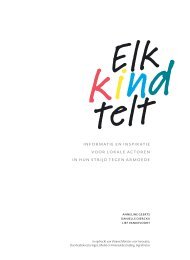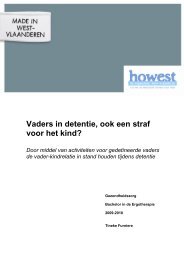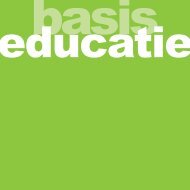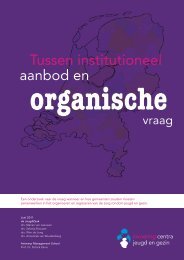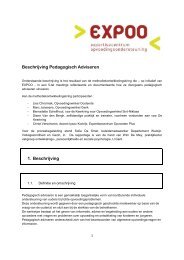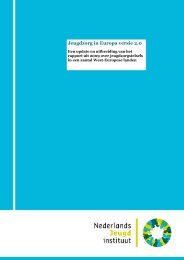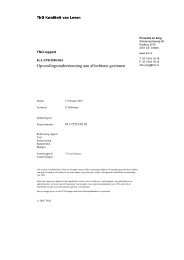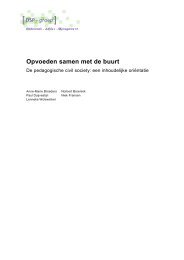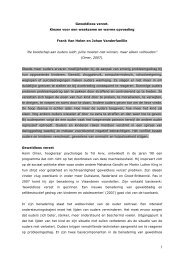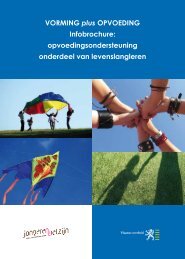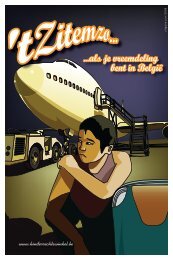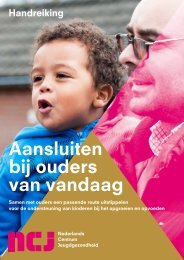Technique Is Not Enough (TINE) - British Psychological Society
Technique Is Not Enough (TINE) - British Psychological Society
Technique Is Not Enough (TINE) - British Psychological Society
- No tags were found...
You also want an ePaper? Increase the reach of your titles
YUMPU automatically turns print PDFs into web optimized ePapers that Google loves.
first started delivering the programme. Moreover sometimes these friendships are between people thatwould not normally mix on a social basis. A very disadvantaged and depressed mother of three verychallenging children made friends with a university graduate who also had a CAMHS referred childbut was relatively advantaged. One of the results of this friendship was that the disadvantagedmother then signed up for continuing education.It may well be that maternal isolation and depression do not have to be addressedseparately and that the kind of supportive social networking that can be developed in andaround a socially inclusive parenting programme can have a powerful effect both onlearning retention and longer term maternal mood. There is some empirical data tosuggest that this is the case and that the same factors are involved as those associated withreaching more disadvantaged families (Hutchings et al., under revision).We also urge programme developers to tap into the power of respecting local voices interms of diversity of race, ethnicity, gender, religion, sexual orientation, age, culture,education and income levels. This account of cultural adaptation demonstrates increasingsocial capital as follows:Triple POne example of significant community consultation is the development of an adaption of GroupTriple P for Australian ondigenous families. Programme developers involved a local steeringcommittee of indigenous professionals from diverse sectors including health, mental health,education and welfare, to review programme content, language and examples. This was followed bythe development of a state-wide reference group with included tribal elders, professionals and parents.Finally, a national forum was later conducted to bring together professionals using Triple P inindigenous communities for a round table discussion on aids and barriers to programmeimplementation. This feedback has been incorporated into programme resources, professionaltraining, and post-training support. These efforts at ensuring cultural sensitivity have been wellreceivedby first nations people in Australia, Canada, New Zealand and the United States.Co-producing appropriate cultural adaptations to parenting programmes involvesnegotiation about which parts of the programme can and cannot be changed. The processof adaptation is an ideal opportunity to model the skill of flexibility to local parents andprofessionals. Developing flexibility through negotiation allows participants to becomeempowered and may sow seeds for embedding enhanced parenting knowledge and familyskills within communities as social capital. For example:Triple PLevel 1 Universal Triple P aims to use health promotion and social marketing strategies to deter theonset of child behaviour problems by: promoting the use of positive parenting practices anddecreasing dysfunctional parenting in the community; increasing parents’ receptivity towardsparticipating in a parenting programme; increasing favourable community attitudes towardsparenting programmes and parenting in general; de-stigmatising and normalising the process ofseeking help for children with behaviour problems; increasing the visibility and reach of theprogramme; and countering alarmist, sensational or parent-blaming messages in the media. Aselection of resources and examples are available, including television public service52 Professional Practice Board



